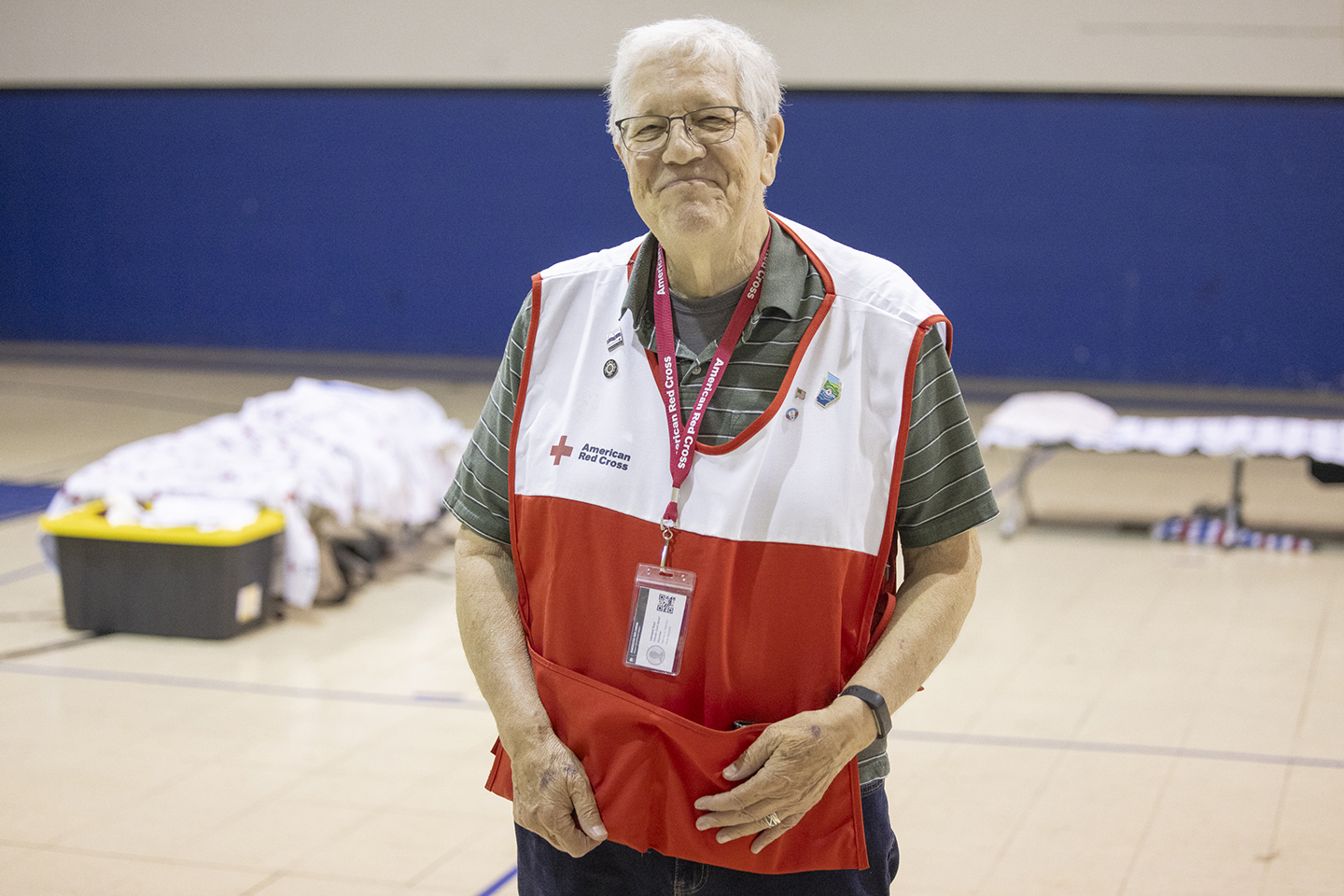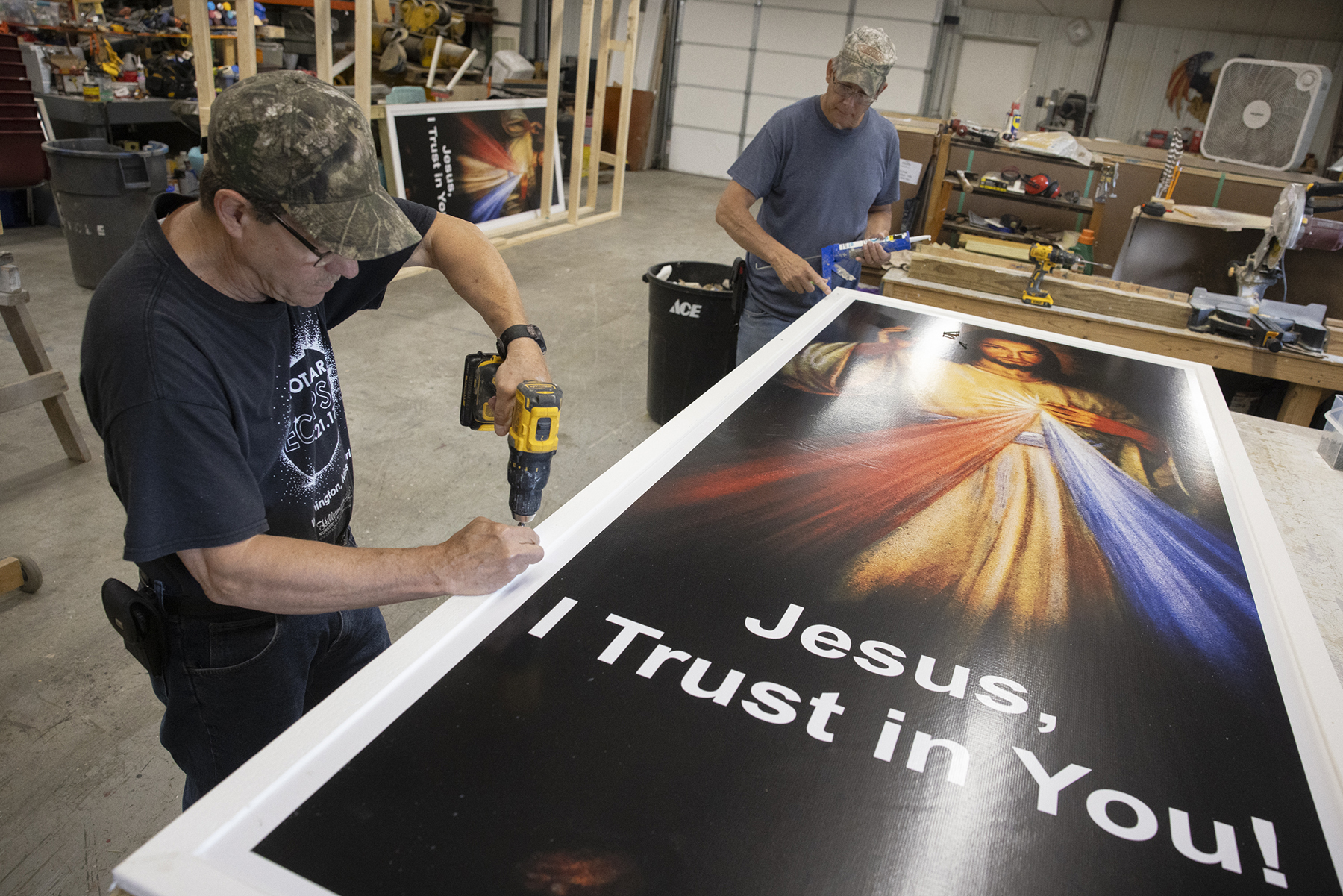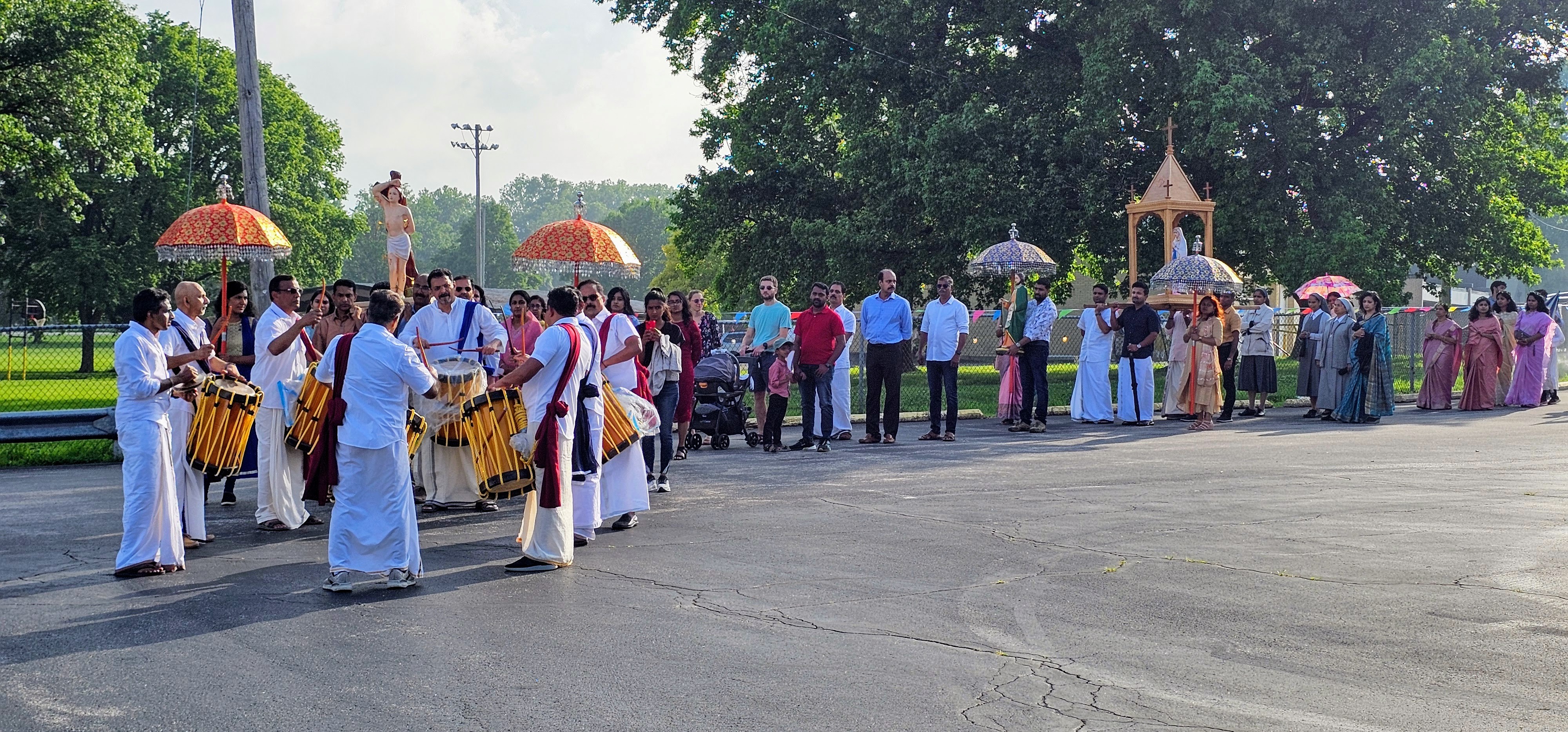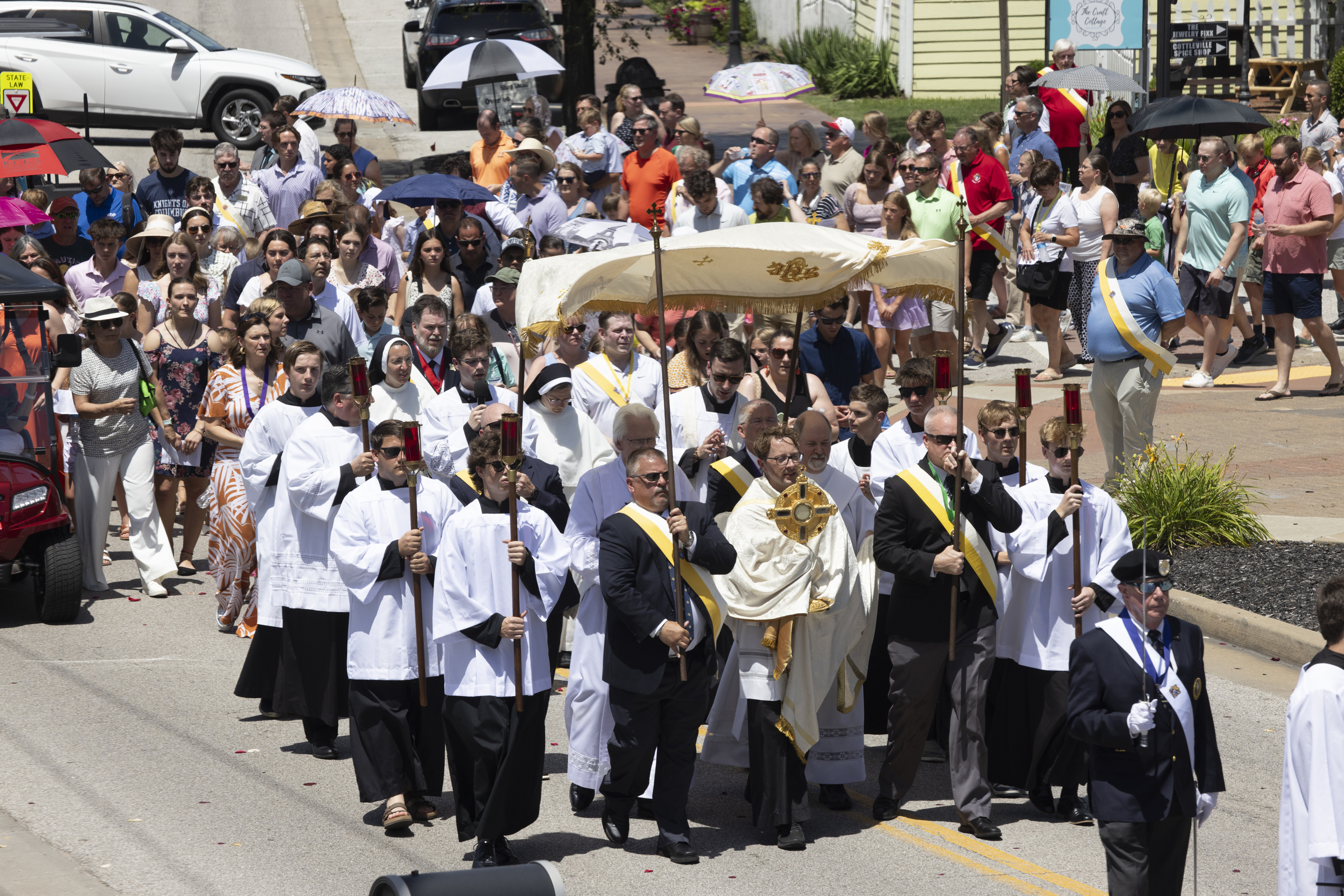St. Louis Reconciliation Network focuses on common ground, understanding

Faith communities are a starting point for healing broken race relations
Linton Harvey appreciated walking in another’s shoes.
That’s what he called being part of the St. Louis Reconciliation Network’s Jn17 Small Group program.
“It was very successful for me,” said Harvey, a parishioner of Assumption in O’Fallon who attended the program in 2018 along with his wife, Chermeka. “It provided a platform to listen to different perspectives and hear what people go through. You walk in each person’s shoes.”
Harvey, who works in the financial industry, said it was a humbling but good experience to have a conversation with people on what they go through on a daily basis based on their race and culture.
He relates experiences with people of different backgrounds to a potato: It can be prepared in many ways and, though still a potato, can bring enjoyment in all its forms.
Harvey is a native of Jamaica, where he did not grow up in the Catholic faith. “Becoming Catholic was eye-opening,” he said, noting that people he grew up with had preconceived notions of Catholics.
The St. Louis Reconciliation Network program brought people from other backgrounds together to find common ground and understanding, Harvey said. “We spoke on our own truths and reflected on how to walk with each other,” he said.
The St. Louis Reconciliation Network began in 2012. Its mission is to heal the broken race relations of the St. Louis region by harnessing the potential collective power of its diverse faith communities. The founder, Dave Gustafson, believes that reliance on God overcomes bigotry and brings racial reconciliation. Programs offer training for members of churches.
Relationships
Father Mitch Doyen, pastor of St. John the Baptist Parish in St. Louis, met Gustafson in September 2017 through a meeting hosted by the archdiocesan Peace and Justice Commission just two days before a white former St. Louis police officer was acquitted of murder in the fatal shooting of a Black man following a high-speed chase, sparking protests in the city. “I was intrigued by Dave’s presence as the founder of the St. Louis Reconciliation Network,” Father Doyen said. “I wanted to stay connected with him in part because of all the circumstances around that week, but also his mission of relying on the capacity of human relationships to bind us together.”
Father Doyen was pastor of Assumption Parish in O’Fallon at the time. He invited Gustafson and Brandon Wilkes, who is now executive director of the St. Louis Reconciliation Network, to lead the Jn17 curriculum. Father Doyen described it as a facilitated dialogue among parishioners of different ethnic backgrounds. “We had a group of 15 folks from all over the world engaging each other, hearing each other’s stories,” Father Doyen said. “The hope then from those initial gatherings is to replicate that and expand the network of relationships among people of different backgrounds. That was Jesus’ prayer — John 17 — that we be one, just as the Father is one.”
That vision of unity in Christ is grounded in the capacity of the human person to be in relationship, Father Doyen remarked. “It’s hard work because it’s one relationship at a time,” he explained. “But in a way it’s the only work that is successful.”
Just the beginning
Bernie Sammons attended the St. Louis Reconciliation Network workshop in January 2015 after it was recommended by a co-worker, and he took it to a new level. He was working at Monsanto and nearing retirement with all his children soon headed off on their own. The message resonated.
“I learned a lot,” Sammons said. “I didn’t realize that African-American soldiers were excluded from the G.I. bill. They talked about redlining, white flight, white privilege, all those things.”
The workshop’s goal is to get the conversation going and for participants to carry it forward. So Sammons and his wife, Kathy, formed the social justice group at St. Clare of Assisi Parish in Ellisville, the West County Collaborative and Social Justice 4 All. The last group, Social Justice 4 All, moves beyond presentations to take on projects to solve poverty such as serving as mentors. Each effort has a faith element at its base.
The Tiny Houses project near Sts. Teresa and Bridget Parish in St. Louis, which provides homes for people who were unhoused, is a focus of Social Justice 4 All right now. There have been fundraising efforts for a third house, and Sammons is looking to expand the project in a partnership with city leaders.
The St. Louis Reconciliation Network is designed with diversity among participants for open and honest conversations across the racial divide on sensitive topics. “It was just the beginning of the process for me,” Sammons explained.
The faith angle of the workshop was a critical component. “This is what Jesus asked us to do,” Sammons said. “I always go right to Matthew 25. That Gospel says it’s Jesus’ command to take care of the poor and vulnerable. To take care of my own little camp and ignore my brothers and sisters around me is not the teaching of Jesus Christ or in agreement with Catholic social teaching.”
>> Healing broken ties
Teaching and training is the focus of the St. Louis Reconciliation Network for church leadership as well as programs for church members, both driven by a “single goal: to heal the broken race relations in St. Louis.”
It provides biblically based tools to lead their organizations in godly conversations about race and build cross-racial unity in their congregations and organizations.
>> A scriptural base
Brandon Wilkes, executive director of the St. Louis Reconciliation Network, said the small group discussions’ focus is relationships and information. “We hope that people within the groups begin to build relationships with people within their church or with another church,” he said.
The history of race relations and Scripture serve as a base. The story of the Good Samaritan is an example of Jesus’ teaching about who is your neighbor, Wilkes said. “Many people don’t read that story in that context. The story is about helping a person who you don’t know. Creatively, Jesus throws ethnicity into that story. Everybody in that time frame would have understood that.”
Wilkes said, in a Christian context, “it’s OK to talk about these difficult things without feeling awkward or uncomfortable.”
It’s easier with a foundation of faith. “First and foremost we are followers of Jesus Christ and we’re brothers and sisters in Christ. We’ll walk in that way and we’ll walk out that way,” Wilkes said.
For information, visit www.stlrn.org.
>> What is Jn17?
The St. Louis Reconciliation Network’s programs are based on a section of John 17:20-23.
“I pray not only for them, but also for those who will believe in me through their word, so that they may all be one, as you, Father, are in me and I in you, that they also may be in us, that the world may believe that you sent me. And I have given them the glory you gave me, so that they may be one, as we are one, I in them and you in me, that they may be brought to perfection as one, that the world may know that you sent me, and that you loved them even as you loved me.”
Linton Harvey appreciated walking in another’s shoes. That’s what he called being part of the St. Louis Reconciliation Network’s Jn17 Small Group program. “It was very successful for me,” said … St. Louis Reconciliation Network focuses on common ground, understanding
Subscribe to Read All St. Louis Review Stories
All readers receive 5 stories to read free per month. After that, readers will need to be logged in.
If you are currently receive the St. Louis Review at your home or office, please send your name and address (and subscriber id if you know it) to subscriptions@stlouisreview.com to get your login information.
If you are not currently a subscriber to the St. Louis Review, please contact subscriptions@stlouisreview.com for information on how to subscribe.







